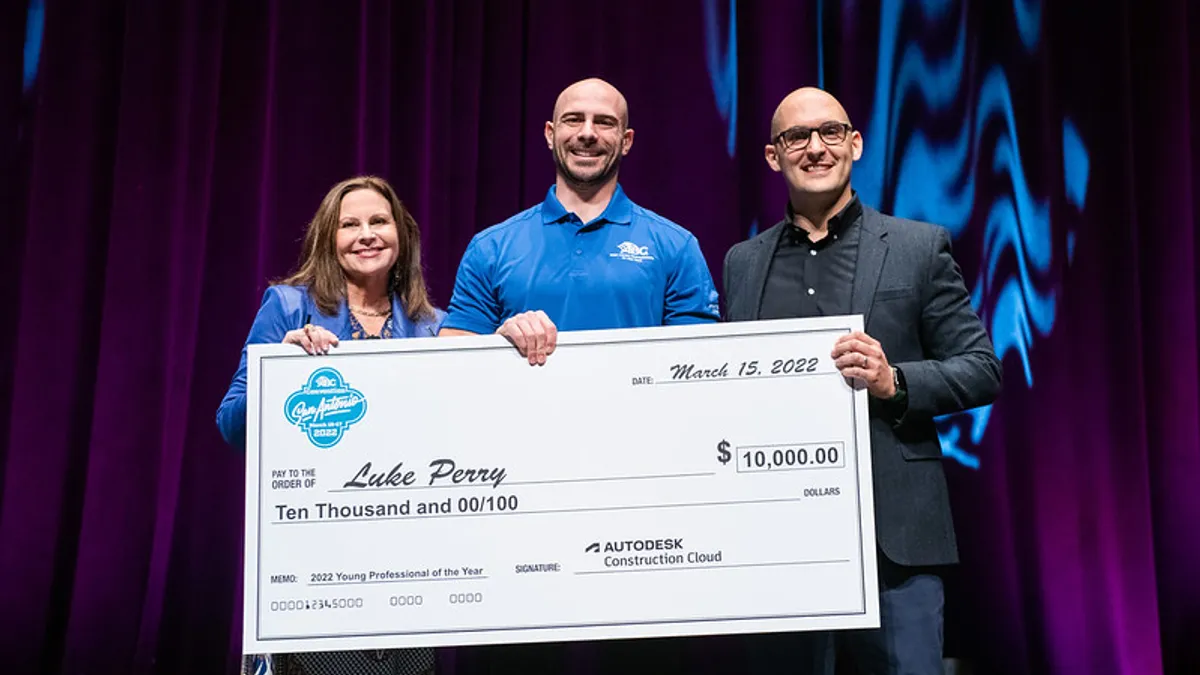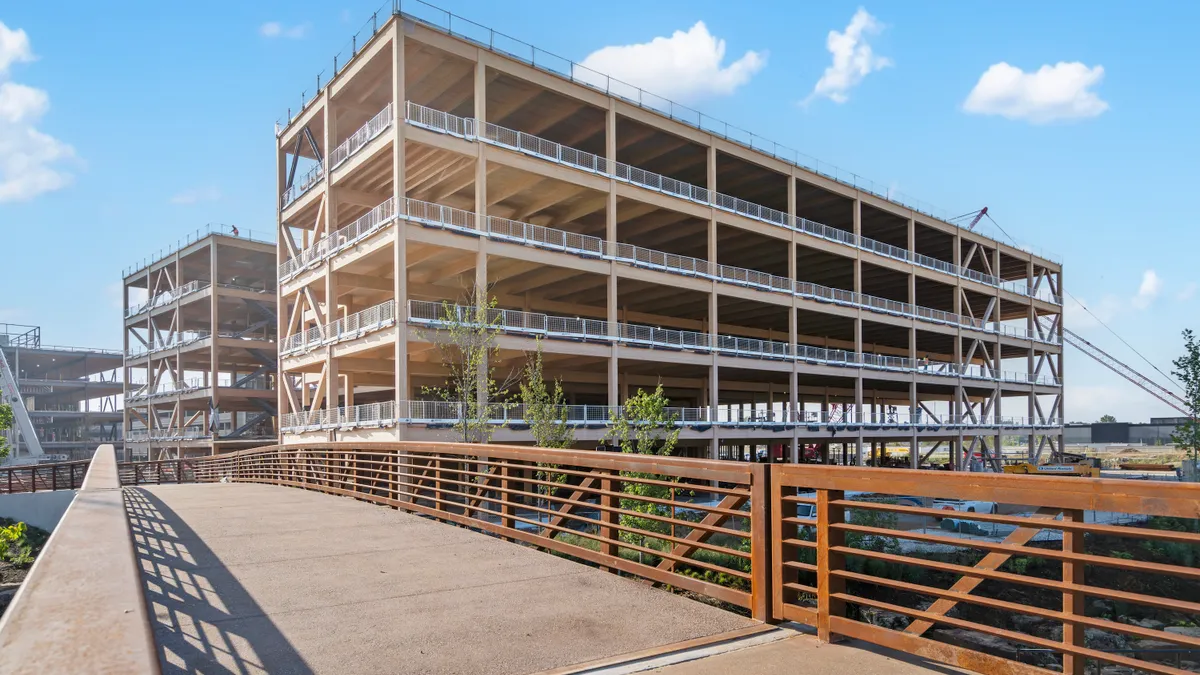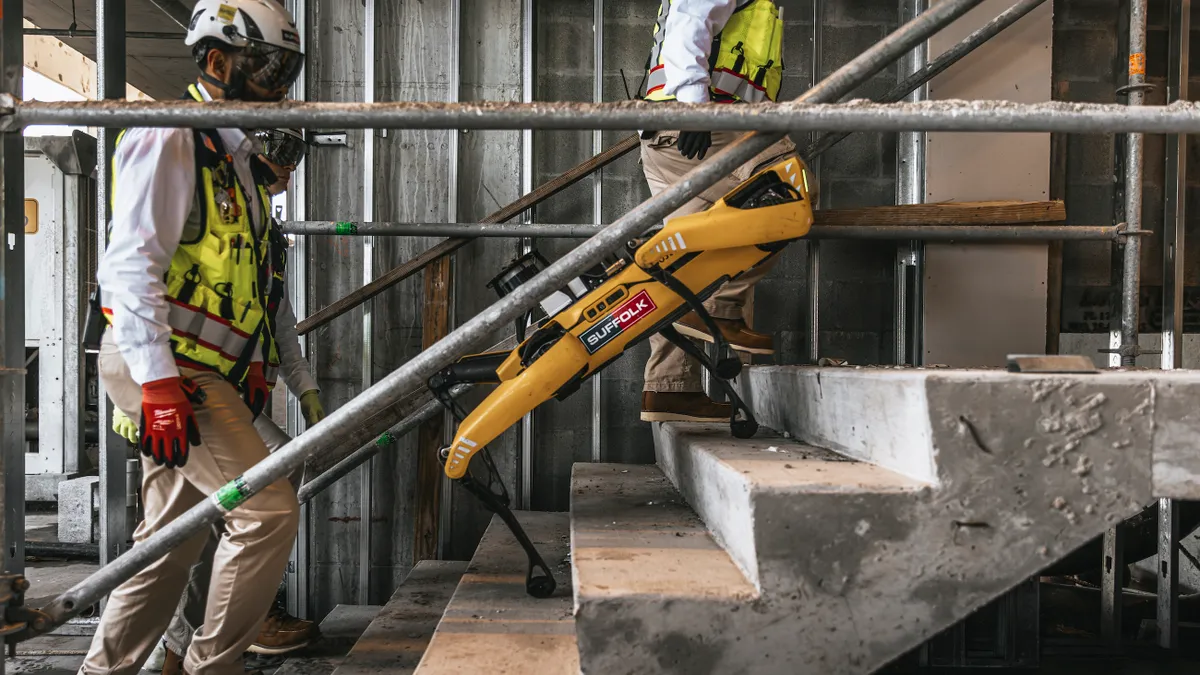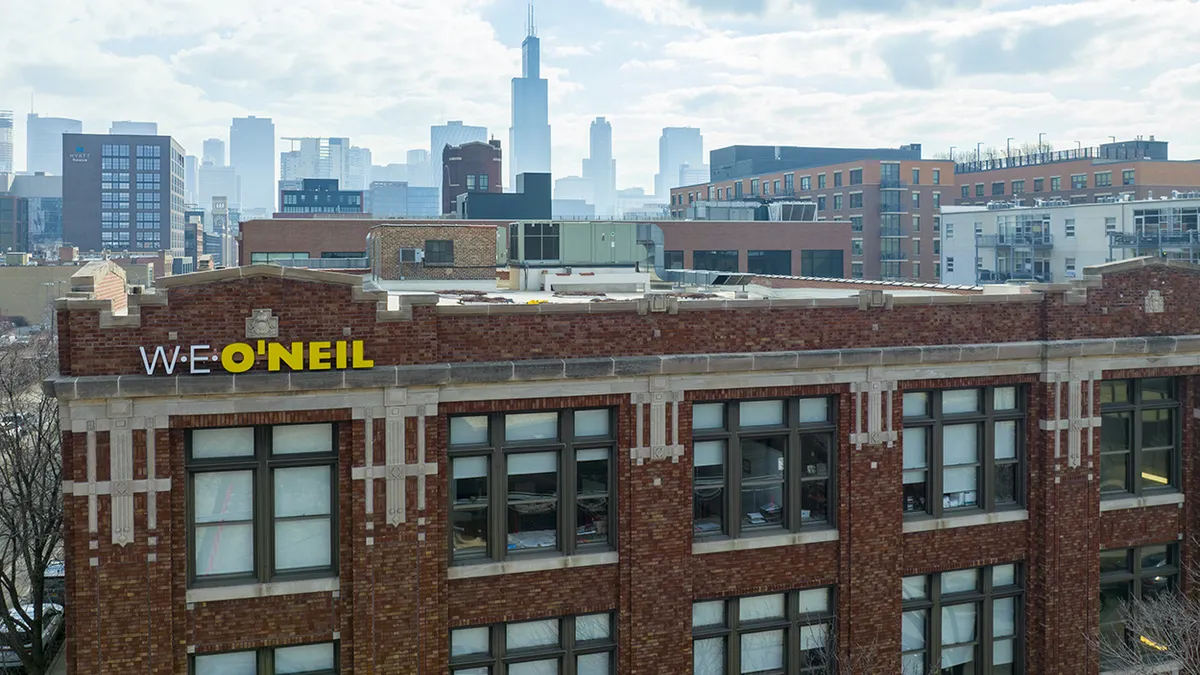Luke Perry is passionate about showing tomorrow's professionals options outside of a four-year degree.
Now vice president at Cincinnati-based Perry Contracting, Perry (above, center) worked at Bethesda, Maryland-based Clark Construction for three years. Last month, Associated Builders and Contractors honored Perry as its 2022 Young Professional of the Year, which comes with a $10,000 reward. Perry also serves as board chair of ABC Ohio Valley, where he formed the chapter's Next Gen Leaders Group to advance his goal of recruiting young professionals.
Here, Construction Dive speaks with Perry about recruiting the next generation of construction workers, working for a family company and taking advantage of what the industry has to offer
The following has been edited for brevity and clarity.
CONSTRUCTION DIVE: What more can be done to get young people into construction and onto jobsites?
LUKE PERRY: We are talking about that all the time. It is no secret: There's a big labor shortage in the skilled trades. Our latest estimates, I believe, say that we're 650,000 people short, and that's really no surprise because the best tradesmen that a lot of us know are getting toward the age of retirement.
So what we need to do as an industry is get young people excited about the trades, because there is a good living to be made here. And I can easily show that by comparing what someone might spend on a typical college degree versus getting a job in the trades and working while you train. So, there's a lot of opportunity here, we just have to let people know about it.
You see a lot of credentialing, I think, in the labor market as a whole. What I mean by that is you look at job ads and they might say, "You have to have a master's to do this," or "You need five years experience to apply for this job," or so on. My message to construction employers out there would be this: You need to hire for attitude and teach the skills.
I would add to that, if you don't mind a story about Perry Contracting, about a year ago, we had a young man walk into our office. He was an Army veteran. He had never picked up a tool in his life. He never picked up a hammer or a drill or any other kind of building tool, but he thought he had an interest in construction. He had the right attitude and we hired him. We're training him, and I guarantee you that we're going to be a better company for it because he's showing just incredible potential. He's going to be quite an asset at the end of the day.
How has the pandemic changed your company? Are those changes permanent?
The pandemic was absolutely a challenge, but it was also an opportunity. At Perry Contracting, we used the pandemic as an opportunity to double down on three things. We doubled down on safety, technology and investing in our people.
We did that by bringing in a safety consultant to revamp our safety manual and give us a whole new set of toolbox talks that we use on a daily basis. We deployed tablets to the field, which we had never done before. And we rolled out a whole new project management software to focus on technology and give us a competitive edge, making us more nimble and competitive in the field.
Then we invested in our people by using that slow time to improve their skills and get them the additional training that they may need.
What are the good and bad things about running a family-owned company?
Building is a tradition and there is honor in that tradition. So as a contractor, we focus on building our entire lives, our entire careers. But we don't just build roads and bridges and hospitals. We also build businesses that support our employees and their families and the community. And that is something to be proud of.
If we can pass the opportunity down to our kids and to our employees to lead our businesses into the future, I really can't see a downside to that.
Obviously, there can be potential entitlement issues, especially when a business transfers from generation one to generation two or generation three to generation four. At Perry Contracting, we have a policy that no family member comes into the business without having worked for another firm for at least four years. And I've worked really hard to prove to everyone at this company that I am not entitled.
I'm certainly not above going through a jobsite and pushing a broom or cleaning up demo debris or hanging drywall or painting when it's needed. In fact, I actually really like that. It gives me an opportunity to work closely with our guys and build a bond between management field personnel.
What do you wish all contractors, recruiters or potential workers knew about the industry today?
It seems like today that home life has gotten really comfortable. You can, if you want something, order it on Amazon and it'll be there in two days. Whatever show you want to watch, pull it up on Netflix and it's there. It's harder and harder to get people to leave their homes and come out and interact beyond their normal workday.
I think that something is getting lost because there's a whole lot of value to interacting with other companies and exchanging knowledge and ideas. Going to trade shows and going to conventions. And I wish that more people would participate in the extracurriculars of the industry to build the bonds between companies.
I'm not quite sure how to break that cycle. But I certainly personally have gotten a lot of value out of participating in these things, and I want others to experience that. You can't experience it if you're at home binge watching the new season of "Bridgerton" or whatever it is that week.




















